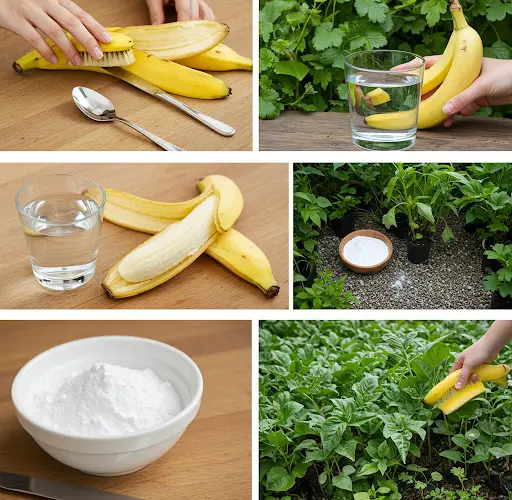Make Your Own Natural Fertilizer: A Powerful Homemade Solution for Healthy Plants
You don’t need to rely on expensive or chemical-laden fertilizers to keep your garden thriving. With a few simple, natural ingredients, you can create an effective organic fertilizer that boosts plant growth, strengthens roots, and enhances soil health — all without harming the environment.
This easy-to-make homemade fertilizer is packed with both micro and macronutrients essential for plant development. It’s especially helpful in promoting strong root systems, encouraging fast seed germination, and supporting the growth of healthy, productive plants. Whether you’re growing onions, lettuce, chard, spinach, or other leafy vegetables, this natural mix can make a noticeable difference in your garden’s productivity.
Why Choose Natural Fertilizers?
Synthetic fertilizers, while effective, can sometimes harm beneficial soil organisms, degrade soil structure over time, and leave behind harmful residues. Natural fertilizers, on the other hand, nourish the soil and plants gently, improving soil health and supporting long-term sustainability in your garden. They’re also safer for the environment, your health, and your wallet.
Ingredients for This Natural Fertilizer
To make this powerful homemade fertilizer, you’ll need:
-
1 tablespoon of baking soda
Baking soda has mild antimicrobial properties that can help suppress harmful fungi and bacteria in the soil. It also helps balance soil pH, making nutrients more accessible to plants. -
Peel of 1 banana (chopped)
Banana peels are rich in potassium, phosphorus, and calcium — key nutrients that promote flowering, root strength, and overall plant vitality. -
1 liter of water
How to Prepare the Fertilizer
-
Chop the banana peel into small pieces to allow it to break down more quickly and release its nutrients efficiently.
-
Add the chopped peel and the tablespoon of baking soda into a container with 1 liter of water.
-
Stir well and let the mixture stand for 24 to 48 hours. This allows the nutrients to infuse into the water and activate the beneficial properties of the ingredients. Shake the mixture occasionally during this time to promote even extraction.
-
After soaking, you will have a concentrated nutrient solution. Dilute this concentrate with an additional 3 liters of water to make it suitable for application to plants.
How to Use It
This fertilizer can be applied in multiple ways:
-
Water your seedlings or established plants directly at the root zone. This delivers nutrients where the plant needs them most and helps strengthen the root system.
-
Soak seeds before sowing (especially for onions and leafy greens) to speed up germination and encourage uniform sprouting.
-
Spray onto the soil surface near leafy vegetables like lettuce, spinach, and chard, which benefit from a gentle but nutrient-rich feeding.
For best results, use this natural fertilizer once every two weeks. Consistent application helps maintain soil nutrient levels and supports continuous plant growth.
Benefits of Each Ingredient
-
Baking Soda: Helps prevent fungal diseases such as powdery mildew and root rot. It also enhances the overall health of the soil by stabilizing pH levels.
-
Banana Peel: Provides essential minerals including potassium and calcium, which are vital for the development of strong cell walls, flower and fruit production, and general plant resilience.
-
Water: Acts as a carrier for dissolving and transporting nutrients to the roots.
Great for a Wide Range of Plants
This natural fertilizer is suitable for:
-
White and red onions – Encourages bulb formation and stronger leaves
-
Leafy greens like lettuce, chard, and spinach – Stimulates lush, tender leaf growth
-
Seedlings and transplants – Supports early growth stages with balanced nutrition
-
Flowering vegetables such as tomatoes, cucumbers, and peppers – Boosts flowering and fruit set
By incorporating this simple, cost-effective fertilizer into your gardening routine, you can support the health of your soil and plants naturally. It’s a great way to recycle organic kitchen waste, reduce chemical use, and grow a more sustainable and productive garden.
Give it a try and enjoy stronger, healthier plants — the natural way!



